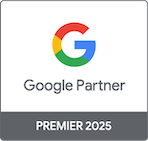Yes, you can. However, you will need to send the traffic to a value-added destination instead of directly to Amazon affiliate products.
How To Manage Your Affiliate Program With Google Ads Tools: Maximize Earnings and Boost ROI
Abisola Tanzako | Feb 14, 2025

Table of Contents
- What is affiliate marketing?
- Why use Google Ads tools for affiliate marketing?
- Essential Google Ads tools for affiliate marketers
- Benefits of affiliate marketing by using Google Ads tools
- How to use Google Ads tools for affiliate marketing
- Challenges and limitations
- Best practices for affiliate marketing tools
- Enhancing affiliate marketing success with Google Ads tools
Affiliate marketing has experienced incredible growth, with spending projected to reach over $12 billion by 2025. According to Statista, U.S. affiliate marketing spending reached $9.56 billion in 2023 and is expected to reach approximately $12 billion by 2025.
This rapid growth positions affiliate programs at the forefront of the digital economy, offering unparalleled opportunities for both passive and active income for businesses and individuals by promoting third-party products and services.
While Google does not directly provide an affiliate program, its available offerings can supercharge your campaigns for maximum return.
This article examines how you can use Google Ads tools to leverage other associated resources to successfully promote affiliate products. Understand tested methods, vital resources, and guidelines on compliance with Google policies without sacrificing yield.
What is affiliate marketing?
Affiliate marketing is a performance-based way for businesses to reward marketers for driving traffic, leads, or sales. The global affiliate marketing industry is valued at over $17 billion and is projected to reach a market size of $27.78 billion by 2027.
Affiliate marketing drives 16% of all internet orders in the United States alone. 81% of all brands use affiliate programs to increase brand awareness and drive sales.
Of the web publishers, 31% reported affiliate marketing as a major revenue source. Large brands obtain 5-25% of their total e-commerce sales through affiliate marketing, which is growing 10%.
Why use Google Ads tools for affiliate marketing?
Google’s suite of tools offers powerful resources to optimize affiliate campaigns. Here’s why they’re priceless:
- Increased visibility: Google Ads enables you to expand your reach and gain wider exposure in competitive markets.
- Data-driven decisions: Tools like Google Analytics yield actionable insights into user behavior, campaign performance, and optimization opportunities.
- Effective targeting: Google Keyword Planner identifies your audience’s keywords, aligning your content with their search intent.
- Long-term growth: Google Search Console helps monitor organic search performance and growth, providing insights into long-term traffic growth.
- Improved audience insights: Google Trends enables affiliates to create timely, seasonal campaigns or promotions based on people’s wants at a specific time.
- Enhanced ad performance: Google Optimize enables A/B testing of landing pages for optimized layouts and messaging, ultimately improving conversion rates.
Essential Google Ads tools for affiliate marketers
To succeed in affiliate marketing, mastering these essential Google Ads tools can help optimize campaigns, increase visibility, and improve conversions.
Here are the key Google Ads tools every affiliate marketer should master:
- Google Ads – A paid advertising tool that helps marketers reach the right audience and drive traffic to high-value landing pages.
- Google Analytics – Tracks user behavior, allowing marketers to measure campaign performance and refine strategies for better results.
- Google Keyword Planner – Assists in keyword research, helping improve ad targeting and content relevance.
- Google Search Console – Monitors website performance, providing insights into search visibility and optimization opportunities.
- YouTube – A powerful video marketing platform that boosts engagement and allows affiliate marketers to place links for higher conversions strategically.
Benefits of affiliate marketing by using Google Ads tools
- Better ROI: Improved targeting leads to enhanced conversion and returns.
- Advanced analytics: Google Analytics enables a perfect strategy to pinpoint the users’ behavior with accuracy.
- Brand credibility: Organic visibility in search engines, coupled with quality content, establishes credibility.
- Efficient keyword use: Google Keyword Planner identifies profitable keywords, enhancing campaign effectiveness.
- Scalability: With tools like YouTube and Google Search Console, you can effectively scale your affiliate marketing efforts.
How to use Google Ads tools for affiliate marketing
Although Google Ads tools do not allow direct affiliate links, one can generate effective traffic by building value-added campaigns. Here’s how:
- Create value-added landing pages: Design specific pages offering product reviews, comparisons, or guides. Ensure the page adds value before redirecting the visitor to affiliate products.
- Use high-quality content: Solve the users’ problems or answer commonly asked questions. High-value content builds trust and enhances conversions.
Leverage keywords strategically: Identify and target keywords from Google Keyword Planner based on user intent. Avoid keyword stuffing, as it can lower your quality score. - Run awareness campaigns: Engage potential customers through targeted campaigns that educate them about the value of the product, rather than hard-selling it. This helps increase engagement and boosts conversions.
- Optimize for mobile: To capture the growing number of mobile device users, ensure your landing page is optimized for mobile devices.
- Utilize remarketing campaigns. Google Ads’ remarketing features are effective in increasing conversions. Retarget users who visited your landing pages but didn’t convert.
- Conduct A/B testing: Run different headlines, CTAs, and layouts on your landing pages to optimize their effectiveness. Monitor results with Google Analytics and optimize for performance.
Challenges and limitations
- Strict policies: Google Ads do not allow direct affiliate links; affiliates must create intermediate landing pages. This means more work to comply with Google’s policies.
- Competition: The digital ad space is highly competitive, with numerous advertisers vying for limited ad spots. Affiliates must be creative and strategic in their approaches.
- High costs: Running Google Ads can be expensive if not optimized effectively. High CPC rates across competitive niches can significantly impact overall profitability.
- Ad fatigue: Repetitive or poorly targeted ads will only disengage an audience. To maintain user interest, affiliates must constantly refresh their creativity and evolve their strategies.
- Algorithm updates: Frequent algorithm changes at Google disrupt paid ad campaigns and organic rankings. Affiliates must stay up-to-date with the latest updates and adjust their strategy accordingly.
- Technical expertise required: Basic technical knowledge is necessary to set up and maintain tools such as Google Analytics, Search Console, and conversion tracking, which may intimidate new users.
- Lack of control over affiliate offers: At the mercy of product quality, price, and stock, usually that of affiliates. Any mistakes by affiliate partners will negatively affect conversion rates and audience credibility.
Best practices for affiliate marketing tools
Do’s:
- Follow Google Policies: Adhere to the policy guidelines to avoid account suspension.
- Create valuable content: Provide content that educates or solves user problems, rather than promoting aggressive sales.
- Track campaign success: Utilize Google Analytics to analyze the effectiveness of your campaigns and refine your approach.
- Be consistent: Ensure high-quality content across all campaigns to build trust and improve engagement.
Don’ts:
- Avoid spamming links: Refrain from overloading your campaigns with affiliate links, as this is against Google’s policy.
- Shun Clickbait. Yes, it generates traffic, but misleading titles ultimately erode credibility.
- Never fully depend on paid ads: Complement the paid ads with strategies for organic content to have longevity and success.
Enhancing affiliate marketing success with Google Ads tools
Full-scale affiliate marketing with Google tools means maximizing the possibilities to the fullest, so that your campaign earnings increase.
Utilizing the capabilities offered by various Google tools, including Google Ads, Analytics, and Keyword Planner, you can drive highly targeted campaigns, enhance audience engagement, and achieve an impressive return on investment.
Make Google’s policies your priority to stay ahead in the competitive affiliate marketing industry. Invest in high-quality content and continually optimize your strategies.
Take it to the next level with ClickPatrol: adding specialized training, advanced reporting, and lifetime revenue-sharing opportunities to complement your efforts with Google tools.
Frequently Asked Questions
-
Can I run Google Ads on Amazon affiliate links?
-
How do I comply with Google Ads policies?
Avoid direct affiliate links and create information-oriented content for users, following all Google ad quality and relevancy guidelines.
-
How can I effectively track the performance of an affiliate campaign?
Monitor traffic, conversion rates, and behavior via Google Analytics.
Embed conversion tracking is used to track the actual return on investment.
-
How can I minimize ad spending while maximizing conversions?
Target long-tail keywords, A/B testing, remarketing campaigns, and ad scheduling.
Improve the Quality Score, target high-intent audiences, and use free tools like Google Analytics for insights.






